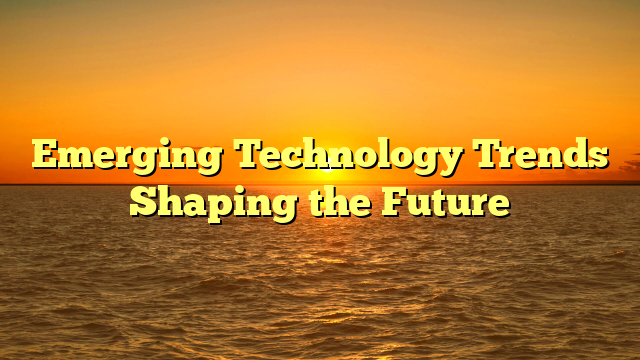In today’s fast-paced digital era, technological innovation is accelerating at an unprecedented rate. From artificial intelligence to sustainable energy solutions, these advancements are transforming industries, reshaping how people work, and influencing daily life on a global Tempur99 scale. The latest technology trends not only highlight progress but also present challenges that demand careful consideration.
One of the most influential developments is Artificial Intelligence (AI). AI has moved far beyond basic automation, now serving as a powerful tool in data analysis, healthcare diagnostics, financial forecasting, and even creative industries. Generative AI, in particular, has gained global attention by enabling machines to create text, images, and even code with remarkable accuracy. While this technology boosts productivity and sparks innovation, it also raises questions about ethics, data privacy, and job displacement.
Another significant trend is the Internet of Things (IoT). Everyday devices are increasingly interconnected, from smart home systems and wearable fitness trackers to industrial sensors. This interconnectivity allows for improved efficiency, better decision-making, and enhanced convenience. However, with more devices connected to the internet, cybersecurity concerns have become more pressing. Protecting user data and ensuring secure communication between devices remain critical priorities.
The global rollout of 5G networks is another driver of technological transformation. With faster speeds and lower latency, 5G supports advanced applications such as autonomous vehicles, augmented reality (AR), virtual reality (VR), and smart cities. This infrastructure is expected to unlock new business models and digital experiences, making connectivity more seamless than ever before.
Meanwhile, blockchain technology and Web3 are reshaping digital ecosystems. Beyond cryptocurrency, blockchain enables transparent and decentralized systems for finance, supply chains, and digital identity management. Although regulatory challenges and public skepticism still exist, blockchain’s potential to revolutionize trust and security in online interactions is undeniable.
Sustainability is also at the heart of modern technology trends. The rise of green technology reflects growing global awareness of climate change and environmental responsibility. Innovations such as renewable energy solutions, energy-efficient devices, and long-lasting battery systems are being developed to minimize carbon footprints. Tech companies are increasingly expected to integrate sustainability into their products and operations.
At the cutting edge of research lies quantum computing. While still in its early stages, this technology has the potential to perform calculations far beyond the capability of traditional computers. Quantum computing could revolutionize fields like pharmaceuticals, logistics, and cybersecurity by solving complex problems at unprecedented speeds. Though commercial adoption is years away, global investments in quantum research highlight its transformative promise.
Taken together, these trends show that technology is steering society toward a more intelligent, interconnected, and sustainable future. Yet, the rapid pace of innovation also brings risks. Issues such as digital inequality, privacy concerns, and the ethical use of AI must be addressed to ensure that technological progress benefits everyone, not just a select few.
In conclusion, emerging technology trends are more than just tools of convenience; they are catalysts of societal change. As AI, IoT, 5G, blockchain, green tech, and quantum computing continue to evolve, they will redefine industries, reshape economies, and influence global culture. The challenge for governments, businesses, and individuals alike is to embrace these innovations responsibly, balancing progress with inclusivity and sustainability.
